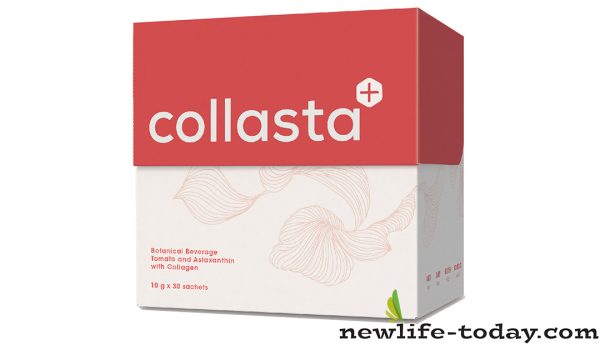Vitamin B3 is an ingredient found in our
Collasta+
product as shown above.
Ingredients contained are not sold separately from the product
unless it's the only ingredient.
Collasta+ contains Fructo-Oligosaccharides, Hydrolyzed Marine Collagen, Citric Acid, Tomato, Astaxanthin, Haematococcus Pluvialisin, Vitamin A, Vitamin D3, Vitamin E, Vitamin K1, Vitamin B1, Vitamin B2, Vitamin B3, Vitamin B5, Vitamin B6, Vitamin B7, Vitamin B9, Vitamin B12, Vitamin C, Fruit Flavour, Stevia, Grape Seed, Green Tea, Pine Bark Extract, Mangosteen, Tremelia, Marigold Flower.
Vitamin B3: Scientific Definition and Benefits
Vitamin B3, also known as niacin (nicotinic acid), is a water-soluble vitamin that plays a critical role in converting food into energy. It is involved in the metabolism of carbohydrates, fats, and proteins and helps the body produce energy. Vitamin B3 exists in two forms: niacinamide (nicotinamide), which is often used in skincare and nicotinic acid, which is the form found in food and supplements. Vitamin B3 is essential for maintaining healthy skin, nerves, and digestive function.
Health Benefits of Vitamin B3
-
Energy Production
- Vitamin B3 is vital for the production of NAD+ (nicotinamide adenine dinucleotide), a coenzyme that plays a crucial role in energy production within cells. It helps convert food into usable energy.
-
Cardiovascular Health
- Niacin can help improve cholesterol levels by increasing HDL cholesterol (good cholesterol) and lowering LDL cholesterol (bad cholesterol) and triglycerides, potentially reducing the risk of cardiovascular disease.
-
Skin Health
- Vitamin B3 is known to improve skin texture, tone, and hydration. It helps reduce the appearance of fine lines, redness, and acne. Niacinamide (a form of vitamin B3) is commonly used in skincare products for its anti-aging and anti-inflammatory effects.
-
Digestive Health
- Niacin supports the function of the digestive system by promoting healthy enzyme activity and ensuring proper nutrient absorption in the intestines.
-
Mental Health and Brain Function
- Niacin plays a role in the synthesis of neurotransmitters, supporting mood regulation and cognitive function. It may help reduce symptoms of anxiety and depression. Severe niacin deficiency can lead to pellagra, a condition characterized by dementia, diarrhea, and dermatitis.
-
Support for Healthy Blood Circulation
- Niacin helps dilate blood vessels, improving blood circulation and reducing the risk of heart-related conditions. It can also help with peripheral artery disease and improving circulation to the extremities.
-
Anti-Inflammatory Properties
- Niacinamide has anti-inflammatory effects, which may benefit individuals with conditions like arthritis, inflammatory bowel disease, and rosacea.
-
DNA Repair and Cell Function
- Vitamin B3 is essential for maintaining DNA integrity and cellular repair, supporting healthy aging and cellular regeneration.
Sources of Vitamin B3
- Animal-based foods: Chicken, turkey, beef, pork, and fish (such as tuna and salmon).
- Plant-based foods: Whole grains (brown rice, oats), legumes (beans, lentils), and nuts (peanuts).
- Fortified foods: Some breads and cereals are fortified with niacin.
- Supplements: Niacin is available in both nicotinic acid and niacinamide forms, often as part of B-complex vitamins.

